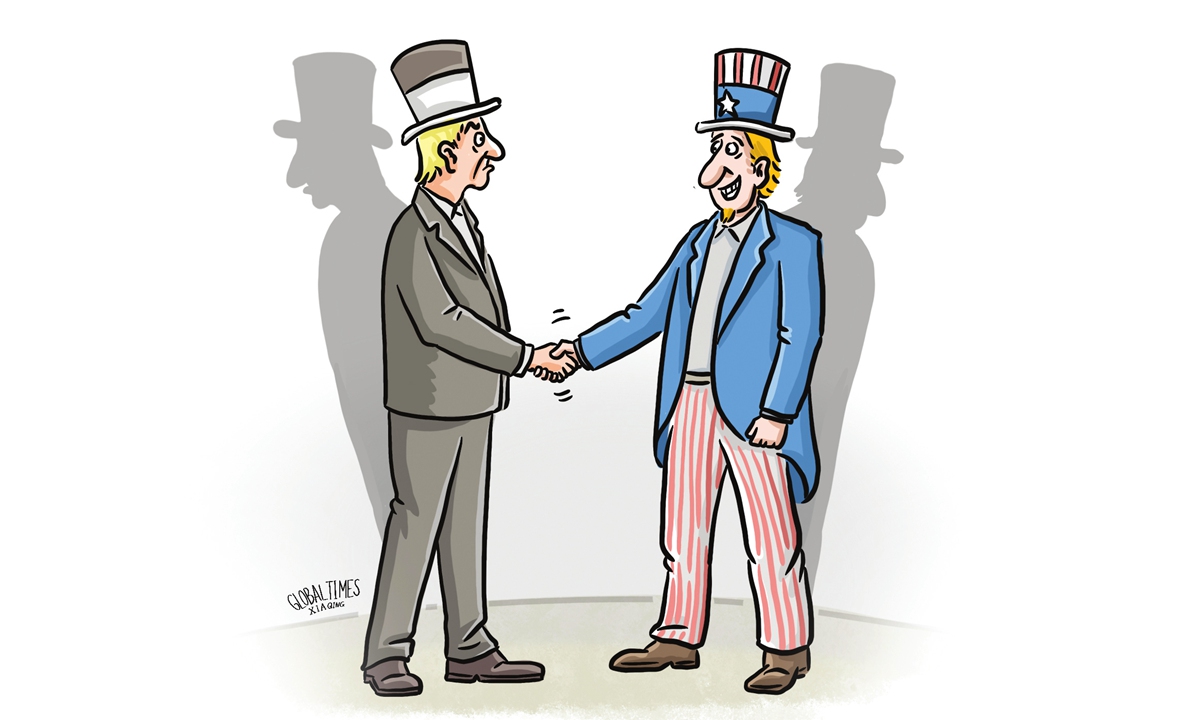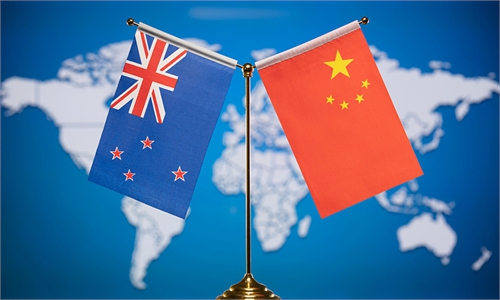
Illustration: Xia Qing/GT
US President Joe Biden made his first state visit to France from June 5 to 9. Under the Donald Trump administration, the US and France had various disagreements on issues such as digital and aviation trade, climate change and the Iran nuclear agreement, causing bilateral relations to hit rock bottom. Former French foreign minister Jean-Yves Le Drian once described that the US-France relationship faced a "crisis of trust" after the announcement of AUKUS in 2021 made Paris lose its submarine deal with Canberra.
Despite that the two countries becoming somewhat closer due to the Russia-Ukraine conflict, there are still many unresolved issues between the US and France. Biden's high-profile visit coincided with the 80th anniversary of D-Day landings in Normandy, the once-every-five-year European Parliament elections and the change of leadership in the EU, naturally attracting global attention.
Judging from the results, Biden's visit to France has achieved some gains. The US and France have released a cooperation roadmap covering various international issues such as the Russia-Ukraine and Palestine-Israel conflicts, artificial intelligence, cybersecurity and climate change, among others. They have proposed bilateral cooperation in areas including civil nuclear energy, space, transportation, food security, culture and sports, continuing the trend of relaxation and closeness in the France-US relationship in recent times.
However, the extensive 66-point agreement is more about confirmation of past consensus and promotion of cooperation intentions, with few actual results being seen. French media also stated that Biden's state visit did not announce any substantive matters, with the most important goal being to showcase the friendship between the two countries. As for issues related to China, the US and France did not reach more new consensus and coordination, only mentioning the issue of "overcapacity."
Why does Biden's high profile visit to France appear ineffective? The reason lies in the structural contradictions in the economic and strategic aspects between the US and France, which have always hindered Washington from attracting Paris closer.
Economically, in recent years, the US' unilateral approach, hegemonic obstruction of international economic and trade and controversial long-arm jurisdiction have been difficult to reconcile with France and the EU's emphasis on multilateralism and strategic autonomy. A typical example is the US Inflation Reduction Act, which offers huge subsidies to attract European companies, impacting France and the EU's green transformation. In addition, with the new wave of technological innovation approaching, conflicts between the US and France in digital and other fields remain unresolved, and the shadow of trade friction didn't really dissipate with the Biden administration in office.
Strategically, France has long been unwilling to play the role of the US' pawn, seeking to conduct independent diplomacy. In recent years, it has raised the banner of "European strategic autonomy" and even tried to promote European defense integration, which is far from the US' strategic intentions.
Currently, with the formation of the confrontation between China and the US, France, under the leadership of Macron, is unwilling to become a battleground for great power games and continues to pursue a diplomatic practice seeking balance. During Chinese President Xi Jinping's state visit to France last month, France also demonstrated clear independence in its policy toward China, reaching four joint statements and a series of cooperation agreements.
Against this background, some interpret Biden's visit to France as an attempt to balance China's influence in Europe and win over France. However, objectively speaking, France is unlikely to easily jump on the US' anti-China bandwagon. The tradition of independent diplomacy, ambitions as a major economic and technological power and the France-Germany axis' leadership position in the EU all prevent France from "bowing down to the US." Not to mention that the Biden administration is unable to give France what it wants, considering the current reality of the increasingly fierce industrial competition between the two countries.
As the US presidential election approaches, the threat of isolationism caused by Trump's possible comeback not only challenges US security commitments to Europe, including France, but also brings the shadow of economic and trade conflict back to Europe. The continued rise of far-right political forces in France and Macron's political gamble of dissolving the National Assembly after the defeat in the European Parliament elections further prompt the US and France to take a cautious wait-and-see attitude toward each other. Where the future of strategic autonomy in France and Europe leads is still unknown. Meanwhile, the divergence and cooperation between the US on one side and France and Europe on the others in their relations with China may inevitably lead to a long-term tug-of-war between the two sides.
The author is a research assistant at the Center for European Studies at Fudan University in Shanghai. opinion@globaltimes.com.cn

